HLSBFI is excited to host the Second Annual Blockchain, FinTech & Law Conference. Last year, our first conference brought over a hundred participants from across the country. This year, our public conference will host leading academics, industry professionals, regulators, and lawyers from around the world. Our conference is one of a few uniquely suited to discuss blockchain and FinTech legal and regulatory issues.
Sponsored by

Blockchain, Fintech & the Law 2020 Agenda
Industry Sessions
Event
Time & Location
Speakers
Keynote
Monday, March 2, 12:00 – 1:00pm WCC 2012
Juan Zarate (Financial Integrity Network)
Lightning Session 1. Inclusion and Ethics of FinTech
Monday, March 2, 1:30 – 2:15pm WCC 1010
Amit Sharma (CEO FinClusive)
Lightning Session 2. Fiduciary Duty and Blockchain: In Whom Do We Trust?
Monday, March 2, 2:30 – 3:15pm WCC 1010
Primavera De Filippi (National Center of Scientific Research; Berkman Klein), Angela Walch (Centre for Blockchain Technologies at University College London), Raina Haque (Duke University School of Law), Carla Reyes (Michigan State University College of Law)
Lightning Session 3. The International Development of the Blockchain and FinTech Industry
Monday, March 2, 3:30 – 4:15pm WCC 1010
Jhalak Kakkar (Moderator), Daniel Ryan (Revolut), Chiming Kam (Autorité des Marchés Financiers), Julie Smith (MLG)
Regulation Sessions
Event
Time & Location
Speakers
Keynote
Tuesday, March 3, 12:00 – 1:00pm WCC 2009
Lydia Beyoud (Bloomberg Law), Marvin Ammori (Protocol Labs)
Lightning Session 1. Balancing National Security, Financial Inclusion, and Privacy
Tuesday, March 3, 1:30 – 2:15pm WCC 1010
Steve Hopkins (tZero), Greg Pesci (Spera), Elizabeth Renieris (Berkman Klein), Amit Sharma (CEO FinClusive), Bruce Schneier (Harvard Kennedy School)
Lightning Session 2. Central Bank Digital Currencies: Promising Experiment?
Tuesday, March 3, 2:30 – 3:00pm WCC 1010
John Paul Schnapper-Casteras (Schnapper-Casteras)
Lightning Session 3. Crime and Punishment: Misdeeds in FinTech
Tuesday, March 3, 3:15 – 3:45pm WCC 1010
Amy Aixi Zhang (Moderator, Harvard Law School), Ryan Dobson (EY), Ali Comolli (FBI), Michael Livingood (FBI)
Lightning Session 4. Law and Regulation of Blockchain & Fintech
Tuesday, March 3, 3:45 – 4:15pm WCC 1010
Jason Altabet (Moderator, Harvard Law School), Seth P. Berman (Harvard Law School), Galen Kast (Steptoe)
** All events will be held on campus at Harvard Law School: 1585 Massachusetts Ave., 02138 Cambridge, MA.

FEATURED SPEAKERS
Ordered by Last Name
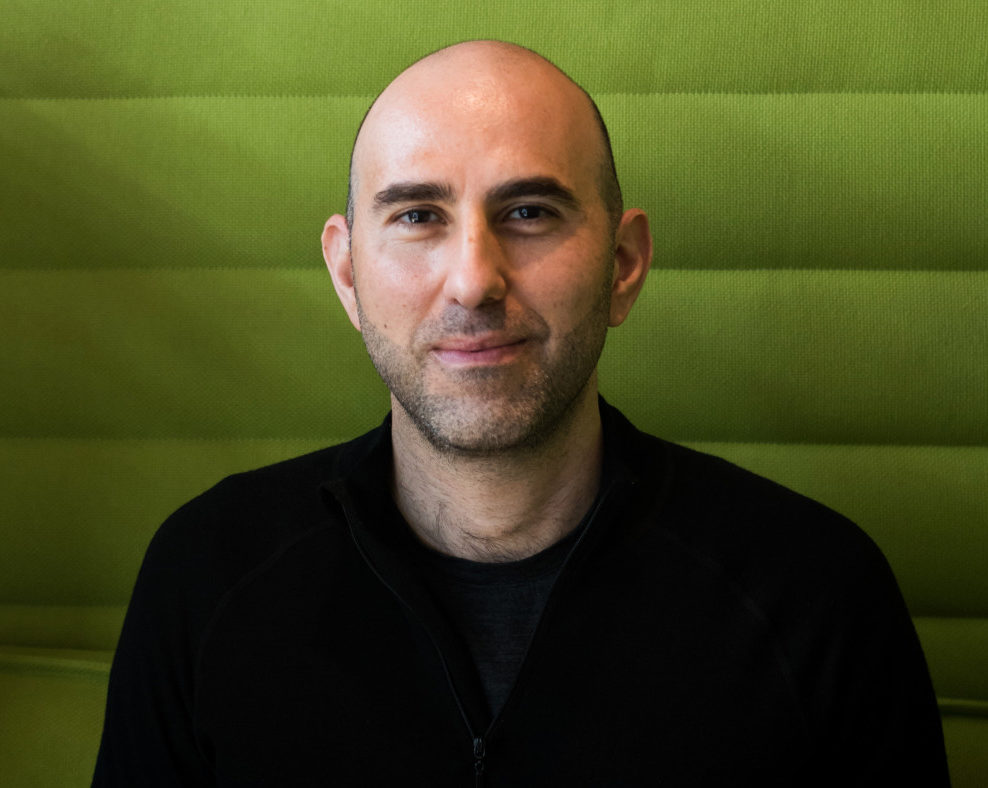 Marvin Ammori heads public policy for Protocol Labs, a company focused on improving the internet and computing generally. Its projects include IPFS, a content-addressing protocol, Filecoin, a cryptocurrency token, and CoinList, a platform for SEC-compliant token sales. Ammori is a founding board member and officer of the Blockchain Association, the industry’s leading trade association. He advised HBO’s Silicon Valley on its final season. Ammori is the former general counsel of Virgin Hyperloop One, where he helped the company raise over $220 million over 18 months. Previously, he headed his own law firm and represented companies including Apple and Google on their most difficult public policy challenges – including serving as the leading net neutrality lawyer in the nation. For his work in shaping the nation’s most significant technology laws, he has been named among Fast Company’s 100 Most Creative in Business, among Politico’s 50 visionaries changing politics, and a Washingtonian “Tech Titan.” Ammori earned a B.A. in literature from the University of Michigan and a J.D. from Harvard Law School.
Marvin Ammori heads public policy for Protocol Labs, a company focused on improving the internet and computing generally. Its projects include IPFS, a content-addressing protocol, Filecoin, a cryptocurrency token, and CoinList, a platform for SEC-compliant token sales. Ammori is a founding board member and officer of the Blockchain Association, the industry’s leading trade association. He advised HBO’s Silicon Valley on its final season. Ammori is the former general counsel of Virgin Hyperloop One, where he helped the company raise over $220 million over 18 months. Previously, he headed his own law firm and represented companies including Apple and Google on their most difficult public policy challenges – including serving as the leading net neutrality lawyer in the nation. For his work in shaping the nation’s most significant technology laws, he has been named among Fast Company’s 100 Most Creative in Business, among Politico’s 50 visionaries changing politics, and a Washingtonian “Tech Titan.” Ammori earned a B.A. in literature from the University of Michigan and a J.D. from Harvard Law School.
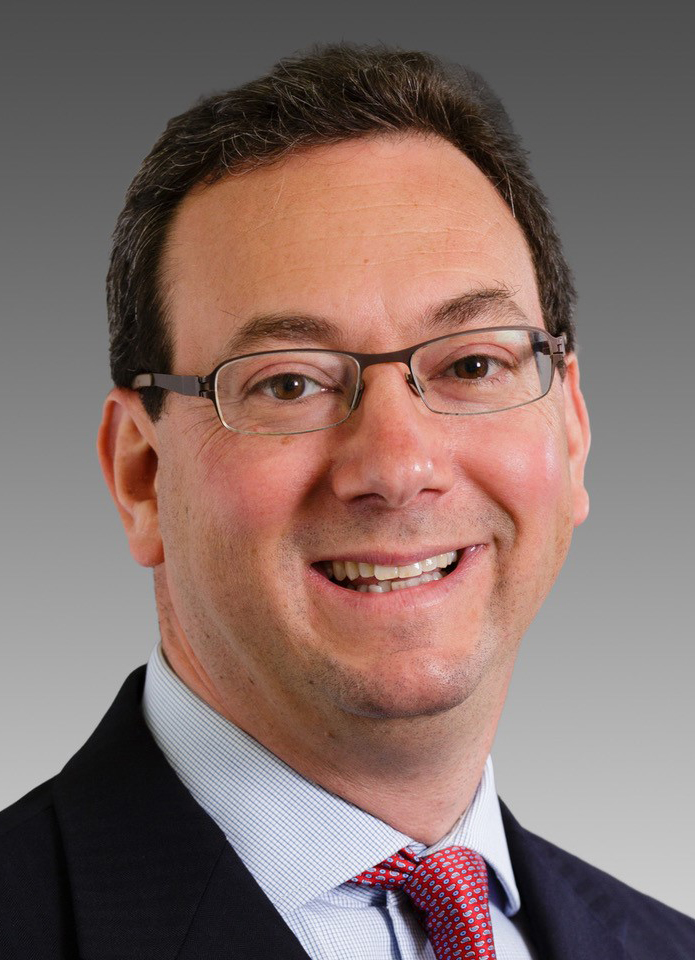
Seth P. Berman is a partner at Nutter, McClennen & Fish in Boston, and a Visiting Lecturer at Harvard Law School, where he teaches about Cyber Crime Law and Procedure. Seth leads Nutter’s Privacy and Data Security practice group and is a member of the firm’s White Collar defense practice group. Corporations and their boards engage Seth to address the legal, technical and strategic aspects of data privacy and cybersecurity risk, and to prepare for and respond to data breaches, hacking and other cyber attacks. Seth also represents clients in white collar criminal matters, and has particular expertise in conducting cross-border internal investigations and in the data privacy implications of such matters.

Lydia Beyoud is a fintech and financial services reporter based in Washington, D.C. She focuses on the intersection of regulations, law and business driving changes in the financial sector. She holds a master’s in journalism and public policy from American University, and a bachelor’s in international studies from Portland State University.
Alexandra Comolli
Ali Comolli is a Management and Program Analyst in the Federal Bureau of Investigation’s Criminal Investigative Division, where she covers virtual currency money laundering and unlicensed money transmission and supports the FBI’s Asset Forfeiture program. Previously, Ali covered transnational criminal organizations operating on the Darknet and provided her expertise and tactical operational support to countless Darknet and virtual currency-related investigations. MAPA Comolli also has worked in the FBI’s Cyber Division, where she supported the FBI’s international efforts to combat cyber crime.
 Primavera De Filippi is a permanent researcher at the National Center of Scientific Research (CNRS) in Paris, a faculty associate at the Berkman Klein Center for Internet & Society at Harvard University, and a Visiting Fellow at the Robert Schuman Centre for Advanced Studies at the European University Institute. She is a member of the Global Future Council on Blockchain Technologies at the World Economic Forum, and co-founder of the Internet Governance Forum’s dynamic coalitions on Blockchain Technology (COALA). Her fields of interest focus on legal challenges raised by decentralized technologies, with a particular focus on blockchain technologies. She is investigating the new opportunities for these technologies to enable new governance models and participatory decision-making through the concept of governance-by-design. Her book, “Blockchain and the Law,” was published in 2018 by Harvard University Press (co-authored with Aaron Wright).
Primavera De Filippi is a permanent researcher at the National Center of Scientific Research (CNRS) in Paris, a faculty associate at the Berkman Klein Center for Internet & Society at Harvard University, and a Visiting Fellow at the Robert Schuman Centre for Advanced Studies at the European University Institute. She is a member of the Global Future Council on Blockchain Technologies at the World Economic Forum, and co-founder of the Internet Governance Forum’s dynamic coalitions on Blockchain Technology (COALA). Her fields of interest focus on legal challenges raised by decentralized technologies, with a particular focus on blockchain technologies. She is investigating the new opportunities for these technologies to enable new governance models and participatory decision-making through the concept of governance-by-design. Her book, “Blockchain and the Law,” was published in 2018 by Harvard University Press (co-authored with Aaron Wright).
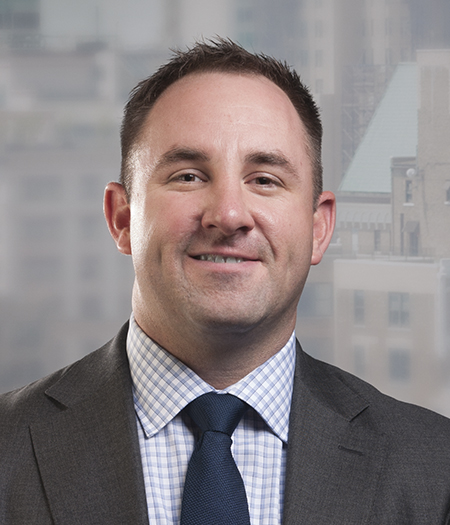 Ryan Dobson is a Senior Manager in the Forensic & Integrity Services practice in Boston, MA. He has 11 years of experience supporting internal audit, compliance, risk, and internal & external legal counsel stakeholders with their needs for investigative, litigation support, regulatory investigations, anti-bribery & corruption and other complex business disruption. Keeping up on various fraud trends in the industries he supports, his focus generally includes running investigative engagements with resources state-side and around the globe. Ryan’s experience includes providing Forensics services to public and privately-held companies in the technology, financial services, insurance, healthcare and consumer products industries. More recently, Ryan has helped build an end-to-end compliance monitoring function for a payments processing company, run a global investigation around employee embezzlement and allegations of improper payments to vendors in South America, driven investigations at a National insurance provider focused on conflicts of interest and mishandling of company investment assets, supported the build-out of internal investigative functions at a beverage distributor and designed an enterprise-wide fraud risk and control frameworks at a major Wealth and Asset Management organization. He also consults clients across industries on their development of Compliance and Governance programs with a focus on internal threats, external fraud, and emerging compliance risks.
Ryan Dobson is a Senior Manager in the Forensic & Integrity Services practice in Boston, MA. He has 11 years of experience supporting internal audit, compliance, risk, and internal & external legal counsel stakeholders with their needs for investigative, litigation support, regulatory investigations, anti-bribery & corruption and other complex business disruption. Keeping up on various fraud trends in the industries he supports, his focus generally includes running investigative engagements with resources state-side and around the globe. Ryan’s experience includes providing Forensics services to public and privately-held companies in the technology, financial services, insurance, healthcare and consumer products industries. More recently, Ryan has helped build an end-to-end compliance monitoring function for a payments processing company, run a global investigation around employee embezzlement and allegations of improper payments to vendors in South America, driven investigations at a National insurance provider focused on conflicts of interest and mishandling of company investment assets, supported the build-out of internal investigative functions at a beverage distributor and designed an enterprise-wide fraud risk and control frameworks at a major Wealth and Asset Management organization. He also consults clients across industries on their development of Compliance and Governance programs with a focus on internal threats, external fraud, and emerging compliance risks.
 Raina Haque is a professor who focuses on computational law & emergent technologies at Wake Forest School of Law and Duke University School of Law. She is an affiliate faculty of Duke Center for Law and Technology. Prior to joining the legal profession, she was a fintech business analyst and software engineer at a major Wall Street financial firm in New York City working in (ironically) clearance, trade, and settlement and global portfolio technologies. She is among the first patent attorneys to work in the blockchain technologies space and has written several articles on guidance on IP-related matters. She’s called to train attorneys in the blockchain space at major law schools and professional lecture series in New York City and Silicon Valley. She advises a number of regulatory bodies regarding emerging technologies. Her 2019 publication “Blockchain and Fiduciary Duty” in the Stanford Journal of Blockchain Law and Policy is a top 10% SSRN download, receiving reference internationally from legislative bodies. She is passionate about the interdisciplinary role that this coming generation of jurists can and must take in the burgeoning realm of emergent technologies and entrepreneurialism.
Raina Haque is a professor who focuses on computational law & emergent technologies at Wake Forest School of Law and Duke University School of Law. She is an affiliate faculty of Duke Center for Law and Technology. Prior to joining the legal profession, she was a fintech business analyst and software engineer at a major Wall Street financial firm in New York City working in (ironically) clearance, trade, and settlement and global portfolio technologies. She is among the first patent attorneys to work in the blockchain technologies space and has written several articles on guidance on IP-related matters. She’s called to train attorneys in the blockchain space at major law schools and professional lecture series in New York City and Silicon Valley. She advises a number of regulatory bodies regarding emerging technologies. Her 2019 publication “Blockchain and Fiduciary Duty” in the Stanford Journal of Blockchain Law and Policy is a top 10% SSRN download, receiving reference internationally from legislative bodies. She is passionate about the interdisciplinary role that this coming generation of jurists can and must take in the burgeoning realm of emergent technologies and entrepreneurialism.

Steven Hopkins is the former President of tZERO, a blockchain-based trading platform for securities, founder of fintech payments company, Bitsy.com and former GC of Medici Ventures, Inc., a fund dedicated to advancing blockchain technology. Steve has extensive experience with technology companies in a variety of industries and is a graduate of the University of Chicago Law School and Booth School of Business.
 Chiming Kam is a legal counsel in the market division of the legal affairs department of the “Autorité des Marchés Financiers” (AMF). He graduated in Law and Business Ethics from the University of Cergy-Pontoise and holds an LLM in international financial law from King’s College London. Chiming began his career in law firms before joining BNP Paribas as a Compliance Officer. In 2016, he started working for the AMF’s legal affairs department in the market division where he specializes in the following areas of expertise : financial services regulation (trade and post trade) and crypto regulation. He participated in various re new regimes gulatory projects such as the transposition of EU directives, the Blockchain regulation and took part in the drafting of the PACTE law introducing the regulation of ICOs and digital assets service providers.
Chiming Kam is a legal counsel in the market division of the legal affairs department of the “Autorité des Marchés Financiers” (AMF). He graduated in Law and Business Ethics from the University of Cergy-Pontoise and holds an LLM in international financial law from King’s College London. Chiming began his career in law firms before joining BNP Paribas as a Compliance Officer. In 2016, he started working for the AMF’s legal affairs department in the market division where he specializes in the following areas of expertise : financial services regulation (trade and post trade) and crypto regulation. He participated in various re new regimes gulatory projects such as the transposition of EU directives, the Blockchain regulation and took part in the drafting of the PACTE law introducing the regulation of ICOs and digital assets service providers.
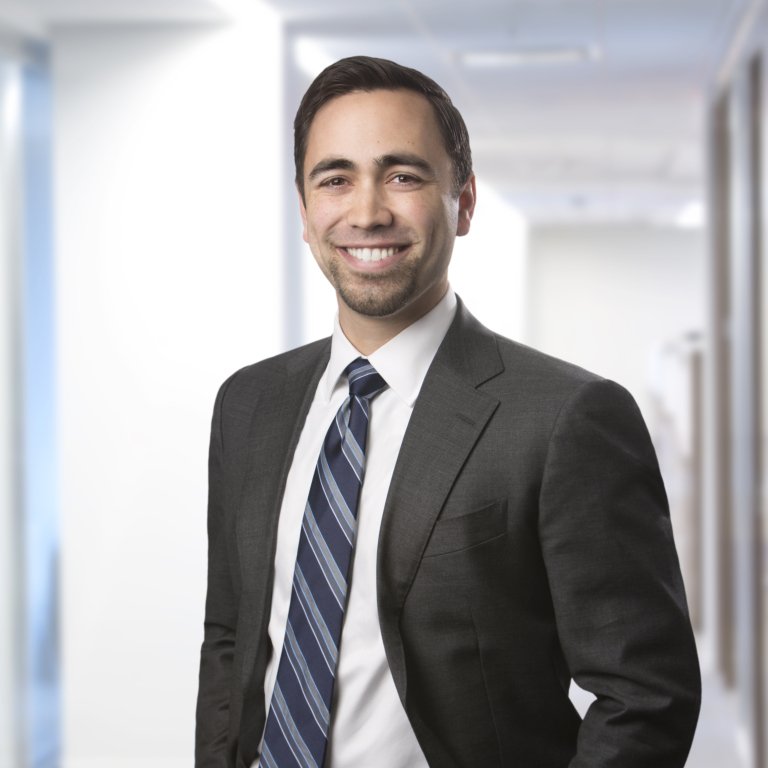
Galen Kast represents both corporate and individual clients in criminal investigations and prosecutions, internal investigations and compliance, and civil litigation. Galen draws on his knowledge in diverse industries including automotive and transportation, blockchain and cryptocurrency, energy, pharmaceuticals, dietary supplements, and electronics and technology to assist clients in all phases of investigations, prosecutions, and litigation.
Michael Livingood
Special Agent Michael Livingood has a wealth of experience working in both the court systems and law enforcement. SA Livingood holds a Master’s degree in Human Services. He has served as a juvenile probation officer at the Pima County Superior Court in Tucson, Arizona, where he frequently supported mental health and drug court programs. He worked with various nonprofits in Tucson to address human trafficking in the region. SA Livingood was an intelligence analyst for the FBI before becoming a special agent. He has investigated a wide range of criminal conduct, including crimes against children, drugs, money laundering, and economic/white collar crime, including cases involving bitcoin. SA Livingood is currently assigned to the Boston Field Office.”
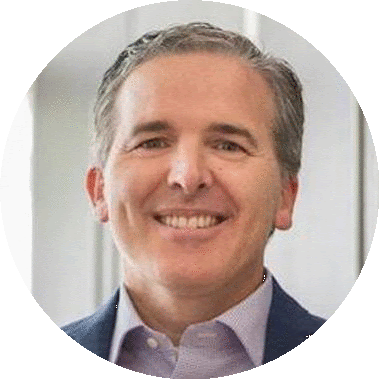 Greg Pesci is the President and CEO of Spera, Inc.. Spera is a fintech company that embeds payments into software serving the needs of financial institutions, and independent entrepreneurs. Greg served at ProPay, Inc. for nearly ten years. His roles included General Counsel, and President and COO. ProPay was a privately held payments processor and in 2012, Greg was instrumental in leading the sale of ProPay to Total Systems (“TSYS”). Prior to joining ProPay, Greg served as SVP at Merrick Bank, where he was Associate General Counsel, and led Business Development for more than 6 years. Greg also worked in the Product Supply and Patent Division at Procter and Gamble. He holds a Master of Organizational Behavior from the Marriott School of Management, and a Juris Doctor degree, with honors, from the J. Rueben Clark Law School at Brigham Young University. He is a named inventor on a patent addressing encryption and secure payment transactions.
Greg Pesci is the President and CEO of Spera, Inc.. Spera is a fintech company that embeds payments into software serving the needs of financial institutions, and independent entrepreneurs. Greg served at ProPay, Inc. for nearly ten years. His roles included General Counsel, and President and COO. ProPay was a privately held payments processor and in 2012, Greg was instrumental in leading the sale of ProPay to Total Systems (“TSYS”). Prior to joining ProPay, Greg served as SVP at Merrick Bank, where he was Associate General Counsel, and led Business Development for more than 6 years. Greg also worked in the Product Supply and Patent Division at Procter and Gamble. He holds a Master of Organizational Behavior from the Marriott School of Management, and a Juris Doctor degree, with honors, from the J. Rueben Clark Law School at Brigham Young University. He is a named inventor on a patent addressing encryption and secure payment transactions.
 Elizabeth M. Renieris is the Founder & CEO of hackylawyER, and a leading expert on cross-border data protection and privacy laws (CIPP/E, CIPP/US), digital identity, and emerging technologies like blockchain and AI. She is also a fellow at the Berkman Klein Center for Internet & Society at Harvard University where she researches data governance frameworks for the digital age. Elizabeth has served as in-house counsel at two digital identity startups, outside counsel with two prominent international law firms, and as a government attorney focused on cybersecurity. A frequent public speaker and advocate, Elizabeth has presented before the European Commission, U.K. Parliament, and a variety of international organizations. She holds an A.B. from Harvard College, a J.D. from Vanderbilt Law School, and an LLM from the London School of Economics.
Elizabeth M. Renieris is the Founder & CEO of hackylawyER, and a leading expert on cross-border data protection and privacy laws (CIPP/E, CIPP/US), digital identity, and emerging technologies like blockchain and AI. She is also a fellow at the Berkman Klein Center for Internet & Society at Harvard University where she researches data governance frameworks for the digital age. Elizabeth has served as in-house counsel at two digital identity startups, outside counsel with two prominent international law firms, and as a government attorney focused on cybersecurity. A frequent public speaker and advocate, Elizabeth has presented before the European Commission, U.K. Parliament, and a variety of international organizations. She holds an A.B. from Harvard College, a J.D. from Vanderbilt Law School, and an LLM from the London School of Economics.
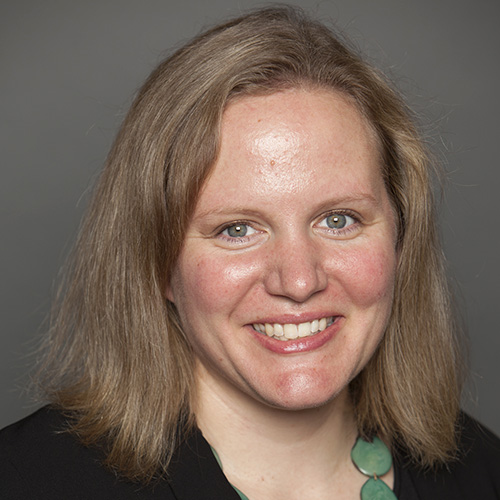 Carla L. Reyes will join Southern Methodist University Dedman School of Law in July 2020, where she will teach commercial law and law & technology courses. She joined Michigan State University College of Law as an Assistant Professor of Law and Director of the Center for Law, Technology & Innovation in 2018, where she teaches Business Enterprises, Technology Transactions, Artificial Intelligence & the Law, and Blockchain Law & Policy. Recognized for her leadership in the issues raised by the intersection of business law and technology, Professor Reyes also currently serves as the Research Director for the Uniform Law Commission’s Technology Committee, the co-chair (with University of Pennsylvania’s Professor Chuck Mooney) of the Digital Assets Other Than Virtual Currency sub-group of the Joint ALI/ULC Study Committee on the Uniform Commercial Code and Emerging Technologies, and as a 2019-2020 Faculty Fellow at the Michigan State University Hub for Innovation in Teaching and Learning. Prior to joining Michigan State University College of Law, Professor Reyes taught commercial and business law courses at Stetson University College of Law as a Visiting Assistant Professor of Law from 2016-2018. Prior to law teaching, Professor Reyes practiced law as an associate in the Blockchain Technology and Digital Currency industry group at Perkins Coie LLP. Professor Reyes earned her JD magna cum laude and an LLM in International and Comparative Law from Duke University School of Law, and holds an MPP from the Duke University Sanford School of Public Policy, and a BA, summa cum laude, from Whitworth University.
Carla L. Reyes will join Southern Methodist University Dedman School of Law in July 2020, where she will teach commercial law and law & technology courses. She joined Michigan State University College of Law as an Assistant Professor of Law and Director of the Center for Law, Technology & Innovation in 2018, where she teaches Business Enterprises, Technology Transactions, Artificial Intelligence & the Law, and Blockchain Law & Policy. Recognized for her leadership in the issues raised by the intersection of business law and technology, Professor Reyes also currently serves as the Research Director for the Uniform Law Commission’s Technology Committee, the co-chair (with University of Pennsylvania’s Professor Chuck Mooney) of the Digital Assets Other Than Virtual Currency sub-group of the Joint ALI/ULC Study Committee on the Uniform Commercial Code and Emerging Technologies, and as a 2019-2020 Faculty Fellow at the Michigan State University Hub for Innovation in Teaching and Learning. Prior to joining Michigan State University College of Law, Professor Reyes taught commercial and business law courses at Stetson University College of Law as a Visiting Assistant Professor of Law from 2016-2018. Prior to law teaching, Professor Reyes practiced law as an associate in the Blockchain Technology and Digital Currency industry group at Perkins Coie LLP. Professor Reyes earned her JD magna cum laude and an LLM in International and Comparative Law from Duke University School of Law, and holds an MPP from the Duke University Sanford School of Public Policy, and a BA, summa cum laude, from Whitworth University.

Dan Ryan is an experienced general counsel and head of legal who is helping change the world of financial services by heading up the legal team bringing Revolut, a European fintech unicorn, to North America. Prior to joining Revolut, Dan led the legal team at Cayan, a private-equity backed payments company, to a billion-dollar acquisition by TSYS. Being part of the fintech industry has given Dan the opportunity to continuously search for novel solutions to legacy problems. Dan earned his JD at Boston College Law School and a BA from the University of Michigan, and regularly presents on legal topics to business students.
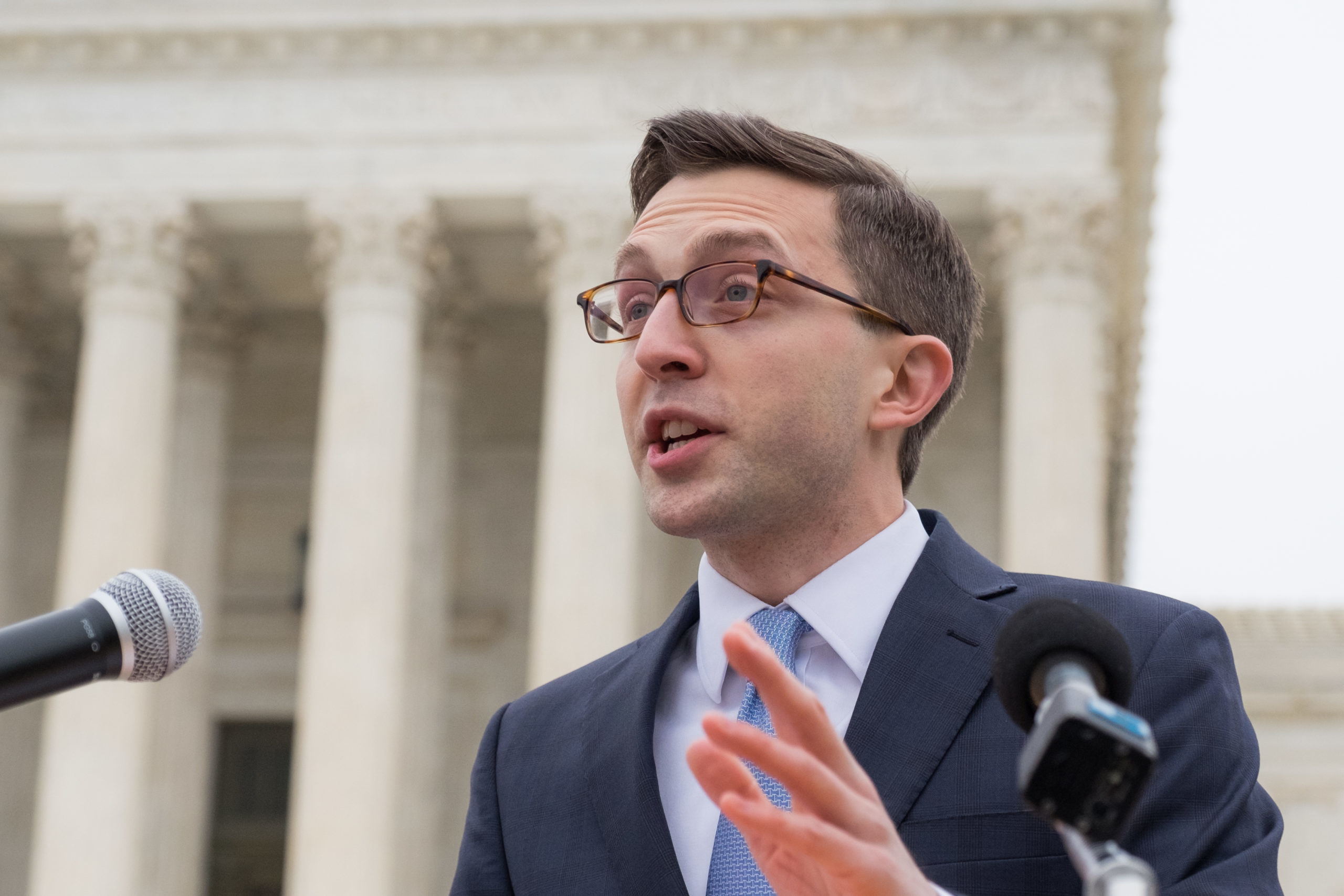
JP Schnapper-Casteras is the founder of Schnapper-Casteras PLLC, a boutique law firm focusing on frontier technology and the Supreme Court. Previously, he served as Special Counsel for Appellate and Supreme Court Advocacy at the NAACP Legal Defense Fund and in the appellate practice of Sidley Austin LLP. JP has published on a range of legal and policy topics in outlets such as The Washington Post, Politico, FinTechPolicy, Harvard Law Review Blog, Harvard Kennedy School Review, SCOTUS Blog, Defense One, and World Affairs Journal. He is the Chairman of the Lantos Foundation for Human Rights and Justice, a Trustee Emeritus of the American University of Iraq, and a former member of the Board of Stanford University (as a graduate student). JP clerked on the U.S. Court of Appeals for the Fourth Circuit as well as on the U.S. Court of Appeals for the Armed Forces. He holds a JD-MPP from Stanford Law School and Harvard Kennedy School, and an MA and BA with Honors from Stanford University.
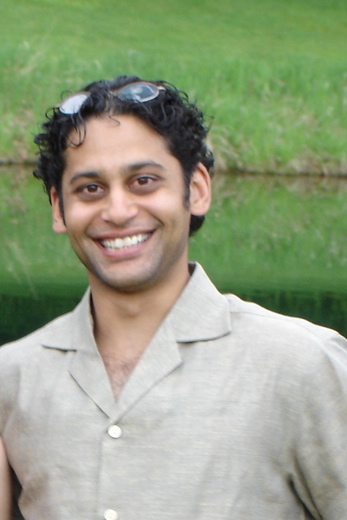 Amit Sharma is the founder of FinClusive, a hybrid financial technology/regulatory technology company that provides a low-cost, high compliance, fully integrated and blockchain architected, digital banking, routing and payments platform. Prior to FinClusive, Mr. Sharma had co-founded Empowerment Capital, an impact investing and strategic advisory company specializing in assisting commercially-scalable impact ventures leveraging new technologies, innovative risk management tools and capital strategies. Previously, he had led Operations and Strategy for Command Global Services (CGS), and had been Chief of Staff and Head of New Products for Mitsubishi UFJ Securities, USA, as well as Head of Project Management to the firm’s International Business and Global Markets Units. In Washington DC, Mr. Sharma served at the US Department of the Treasury, first in the Office of Terrorism and Financial Intelligence—developing and implementing tools to combat transnational threats and financial crime. He later served as Chief of Staff to Deputy Secretary Robert Kimmitt and as Advisor to Treasury’s senior team under Secretary Henry Paulson. Mr. Sharma serves on several working groups, advisory councils and boards, including: the Center for Global Development (CGD), the Foundation for Defense of Democracies’ Center on Economic and Financial Power (CEFP), Middlebury’s Center for Social Impact Learning (CSIL) and Georgetown University’s Beeck Center for Social Impact and Innovation. He was a Peace Corps volunteer in Mongolia, and makes Guilford, Vermont his home where he enjoys farming and making hard cider. Mr. Sharma is a term member of the Council on Foreign Relations, and teaches regularly on issues related to international security policy, counter-terrorism finance, risk, and social venture development at the Monterey Institute of International Studies and Georgetown University. Mr. Sharma holds an MBA and MA from the Monterey Institute of International Studies and a BA from the University of Virginia.
Amit Sharma is the founder of FinClusive, a hybrid financial technology/regulatory technology company that provides a low-cost, high compliance, fully integrated and blockchain architected, digital banking, routing and payments platform. Prior to FinClusive, Mr. Sharma had co-founded Empowerment Capital, an impact investing and strategic advisory company specializing in assisting commercially-scalable impact ventures leveraging new technologies, innovative risk management tools and capital strategies. Previously, he had led Operations and Strategy for Command Global Services (CGS), and had been Chief of Staff and Head of New Products for Mitsubishi UFJ Securities, USA, as well as Head of Project Management to the firm’s International Business and Global Markets Units. In Washington DC, Mr. Sharma served at the US Department of the Treasury, first in the Office of Terrorism and Financial Intelligence—developing and implementing tools to combat transnational threats and financial crime. He later served as Chief of Staff to Deputy Secretary Robert Kimmitt and as Advisor to Treasury’s senior team under Secretary Henry Paulson. Mr. Sharma serves on several working groups, advisory councils and boards, including: the Center for Global Development (CGD), the Foundation for Defense of Democracies’ Center on Economic and Financial Power (CEFP), Middlebury’s Center for Social Impact Learning (CSIL) and Georgetown University’s Beeck Center for Social Impact and Innovation. He was a Peace Corps volunteer in Mongolia, and makes Guilford, Vermont his home where he enjoys farming and making hard cider. Mr. Sharma is a term member of the Council on Foreign Relations, and teaches regularly on issues related to international security policy, counter-terrorism finance, risk, and social venture development at the Monterey Institute of International Studies and Georgetown University. Mr. Sharma holds an MBA and MA from the Monterey Institute of International Studies and a BA from the University of Virginia.
 Julie Smith is former COO of Medici Land Governance (MLG), a company building blockchain-based applications for land administration and property registry in developing countries. While at MLG, Julie helped build MLG’s initial products and secured the company’s first partnership with the World Bank and Zambia Ministry of Lands, resulting in 53,000 new titles for residents of the country’s capital city, Lusaka. Prior to MLG, Julie served as Director of Research at Medici Ventures where she performed due diligence on hundreds of blockchain projects. Prior to joining Medici Ventures, Julie worked in Morgan Stanley’s equity sales and trading division serving the firm’s largest institutional investors. Julie holds a B.A. from Stanford University and an MBA from MIT Sloan.
Julie Smith is former COO of Medici Land Governance (MLG), a company building blockchain-based applications for land administration and property registry in developing countries. While at MLG, Julie helped build MLG’s initial products and secured the company’s first partnership with the World Bank and Zambia Ministry of Lands, resulting in 53,000 new titles for residents of the country’s capital city, Lusaka. Prior to MLG, Julie served as Director of Research at Medici Ventures where she performed due diligence on hundreds of blockchain projects. Prior to joining Medici Ventures, Julie worked in Morgan Stanley’s equity sales and trading division serving the firm’s largest institutional investors. Julie holds a B.A. from Stanford University and an MBA from MIT Sloan.
 Angela Walch is a Professor of Law at St. Mary’s University School of Law in San Antonio, Texas, and a Research Fellow at the Centre for Blockchain Technologies at University College London. Her research focuses on money and the law, cryptocurrencies, and blockchain technologies. Walch’s work is internationally recognized, and she speaks at events around the world. Walch has presented her research at Stanford University, MIT Media Lab, the Simons Institute for the Theory of Computing at UC Berkeley, and the London School of Economics, among others. Her work has appeared in the NYU Journal of Legislation & Public Policy, the Review of Banking & Financial Law, and American Banker, and has been cited in reports by the BIS, the Financial Stability Board, and the OECD. Walch has been featured in The New York Times, The Wall Street Journal, The Economist, WIRED, and The Washington Post, along with other media outlets. Before entering academia, Walch practiced transactional law at the firm of Ropes & Gray in Boston and in the Office of the General Counsel at Harvard University. She also practiced in London, where she worked in-house for Sainsbury’s and served as general counsel for Brand Events. Walch is a graduate of Harvard College and Harvard Law School.
Angela Walch is a Professor of Law at St. Mary’s University School of Law in San Antonio, Texas, and a Research Fellow at the Centre for Blockchain Technologies at University College London. Her research focuses on money and the law, cryptocurrencies, and blockchain technologies. Walch’s work is internationally recognized, and she speaks at events around the world. Walch has presented her research at Stanford University, MIT Media Lab, the Simons Institute for the Theory of Computing at UC Berkeley, and the London School of Economics, among others. Her work has appeared in the NYU Journal of Legislation & Public Policy, the Review of Banking & Financial Law, and American Banker, and has been cited in reports by the BIS, the Financial Stability Board, and the OECD. Walch has been featured in The New York Times, The Wall Street Journal, The Economist, WIRED, and The Washington Post, along with other media outlets. Before entering academia, Walch practiced transactional law at the firm of Ropes & Gray in Boston and in the Office of the General Counsel at Harvard University. She also practiced in London, where she worked in-house for Sainsbury’s and served as general counsel for Brand Events. Walch is a graduate of Harvard College and Harvard Law School.
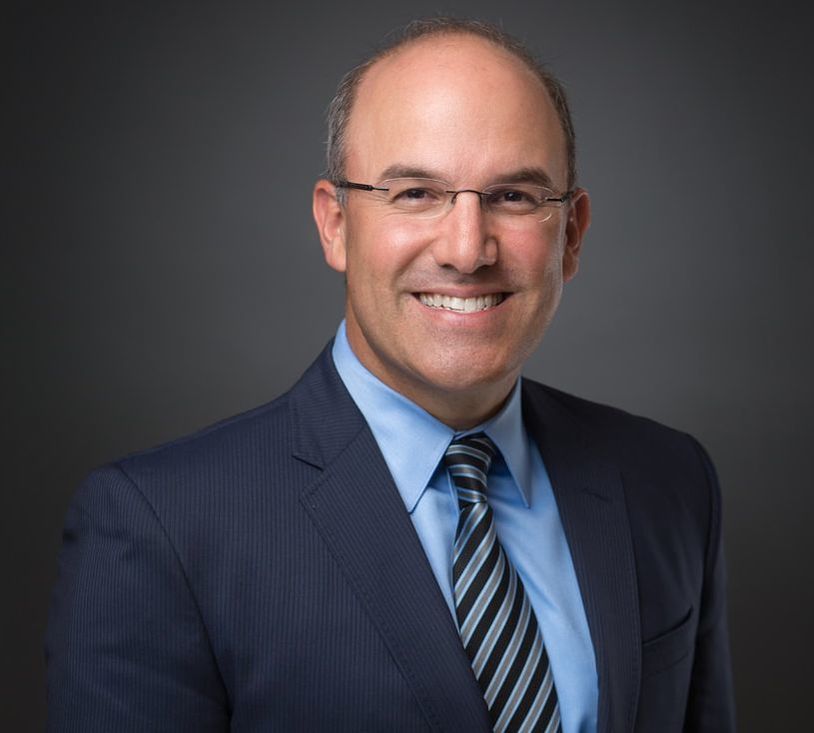
Juan Zarate is chairman and co-founder of the Financial Integrity Network (FIN) and as of September 2019, a partner of the combined firm of K2 Intelligence and FIN. He is the chairman of the Center on Economic and Financial Power, senior adviser at the Center for Strategic and International Studies, and a senior fellow at West Point’s Combating Terrorism Center. He was a visiting lecturer in law at the Harvard Law School for eight years and is a published author, including his books “Treasury’s War” (2013) and “Forging Democracy” (1994). Mr. Zarate sits on the boards of various organizations, including Northwestern Mutual, Boston Dynamics, and the Director’s Advisory Board for the National Counterterrorism Center (NCTC).. For over five years, Mr. Zarate sat on the board of the Vatican’s Financial Information Authority, and for seven years, was the U.S. advisor on HSBC’s Financial System Vulnerabilities Committee. Mr. Zarate served as the deputy assistant to the president and deputy national security adviser for combating terrorism from 2005 to 2009, where he was responsible for developing and implementing the U.S. counterterrorism strategy and policies related to transnational security threats. He was the first ever assistant secretary of the treasury for terrorist financing and financial crimes, where he led the innovative use of the Treasury’s national security-related powers and the establishment of the Office of Terrorism and Financial Intelligence (TFI). Zarate is a former federal terrorism prosecutor, prior to 9/11, and a magna cum laude graduate of Harvard College and a cum laude graduate of the Harvard Law School.
HLSBFI Moderators
Ordered by Last Name
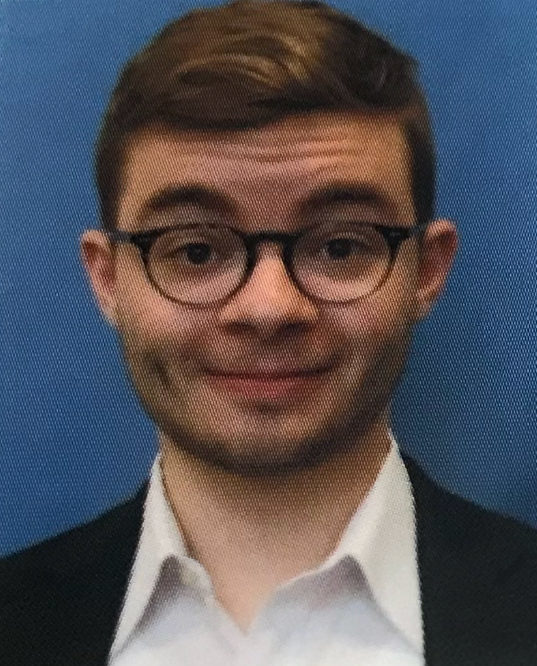 Jason Altabet is a first-year law student at Harvard Law School. In 2017, he graduated from the University of Rochester with a double major in Economics and Political Science. His senior thesis, Candidate Positioning in U.S. House Elections: The Case of Donald Trump, was published in the Journal of Undergraduate Research. At Rochester, Jason was the President of the Mock Trial Organization, Chairman of the Senior Giving Campaign, and was a Senior Writer for the Campus Times. Jason previously worked at the European Parliament, the Manhattan District Attorney’s Office and the Department of Justice. He’s particularly focused on the intersection of financial regulation, prosecution, and blockchain.
Jason Altabet is a first-year law student at Harvard Law School. In 2017, he graduated from the University of Rochester with a double major in Economics and Political Science. His senior thesis, Candidate Positioning in U.S. House Elections: The Case of Donald Trump, was published in the Journal of Undergraduate Research. At Rochester, Jason was the President of the Mock Trial Organization, Chairman of the Senior Giving Campaign, and was a Senior Writer for the Campus Times. Jason previously worked at the European Parliament, the Manhattan District Attorney’s Office and the Department of Justice. He’s particularly focused on the intersection of financial regulation, prosecution, and blockchain.
 Jhalak Kakkar is currently a Visiting Researcher at Harvard Law School. Prior to this she did her. Master’s in Law from Harvard Law School on a Fulbright scholarship. Regulators around the world are grappling with Fintech and Blockchain and she hopes to advise them as they navigate these complex legal and technical issues. She was part of the founding Board of the HLS Blockchain and Fintech Initiative in 2018, while an LLM student at Harvard Law School. Prior to this, for the last six years, Jhalak worked with PRS Legislative Research, New Delhi, India. PRS Legislative provides non partisan research to the 780+ Members of the Indian Parliament and 3000+ Members of State Legislatures on legislation, policy and budgets. She lead PRS Legislative’s engagement with Members of Parliament, before which she was an analyst with the research team tracking legislation and policy on science, technology and natural resources. Jhalak graduated with honors from the National University of Juridical Sciences, India in 2012 with a BA/LLB (law) degree.
Jhalak Kakkar is currently a Visiting Researcher at Harvard Law School. Prior to this she did her. Master’s in Law from Harvard Law School on a Fulbright scholarship. Regulators around the world are grappling with Fintech and Blockchain and she hopes to advise them as they navigate these complex legal and technical issues. She was part of the founding Board of the HLS Blockchain and Fintech Initiative in 2018, while an LLM student at Harvard Law School. Prior to this, for the last six years, Jhalak worked with PRS Legislative Research, New Delhi, India. PRS Legislative provides non partisan research to the 780+ Members of the Indian Parliament and 3000+ Members of State Legislatures on legislation, policy and budgets. She lead PRS Legislative’s engagement with Members of Parliament, before which she was an analyst with the research team tracking legislation and policy on science, technology and natural resources. Jhalak graduated with honors from the National University of Juridical Sciences, India in 2012 with a BA/LLB (law) degree.
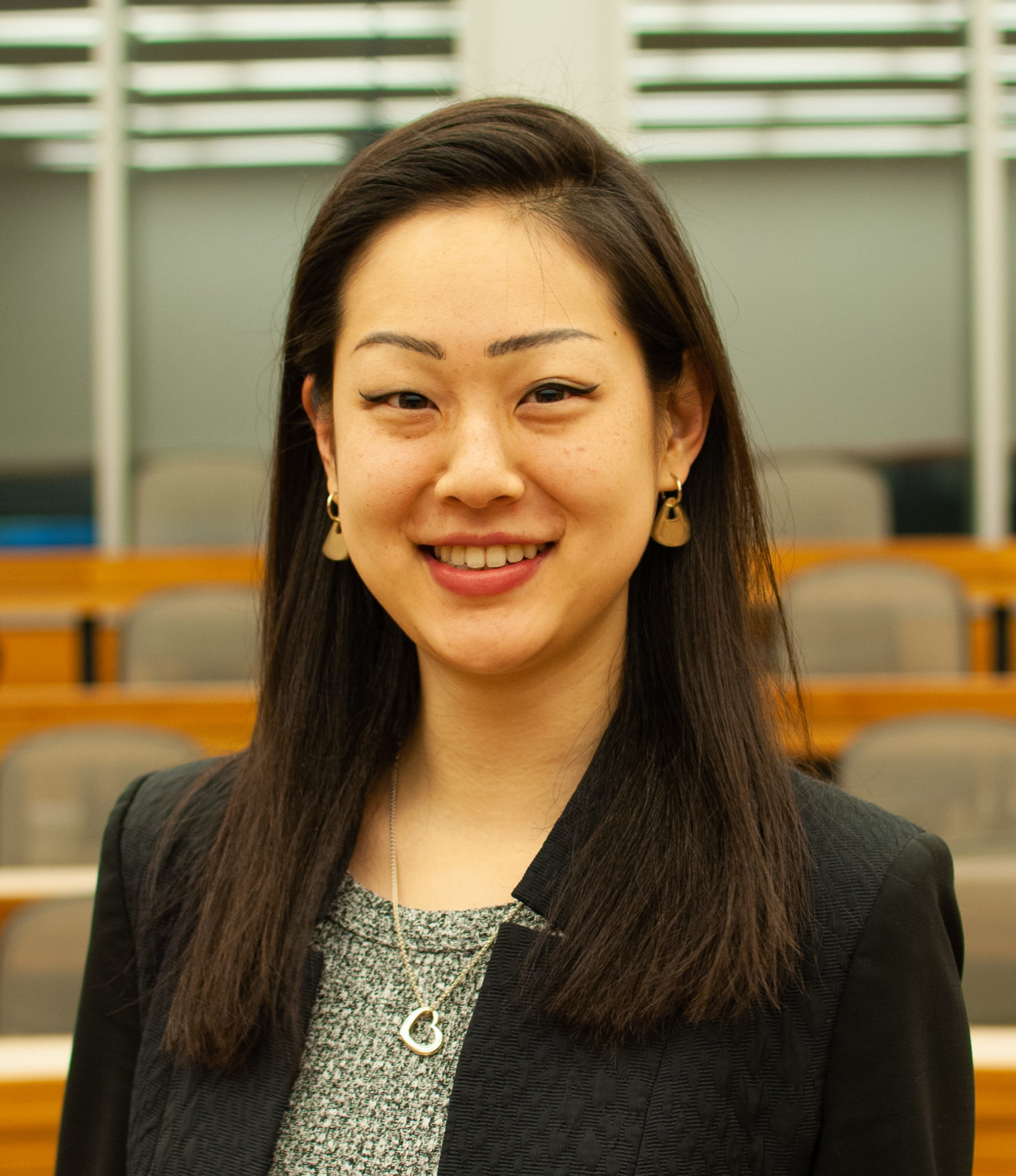 Amy Aixi Zhang is a third-year law student at Harvard Law School. While at school, her work has focused on the regulatory and legal issues around blockchain and financial technology. She founded and is President of the HLS Blockchain and FinTech Initiative. She worked her 1L summer at the Securities and Exchange Commission New York Regional Office in the team’s Cyber Unit. Before law school, she was a researcher at the Berkman Klein Center for Internet & Society at Harvard Law School. She will be working at Debevoise & Plimpton’s regulatory team after graduation.
Amy Aixi Zhang is a third-year law student at Harvard Law School. While at school, her work has focused on the regulatory and legal issues around blockchain and financial technology. She founded and is President of the HLS Blockchain and FinTech Initiative. She worked her 1L summer at the Securities and Exchange Commission New York Regional Office in the team’s Cyber Unit. Before law school, she was a researcher at the Berkman Klein Center for Internet & Society at Harvard Law School. She will be working at Debevoise & Plimpton’s regulatory team after graduation.
HLSBFI Board – Conference Organizers
Ordered by Last Name
 Farah Bougarras is an LLM student at Harvard Law from Carthage, Tunisia. She graduated with honors from Paris I Pantheon Sorbonne in financial law and from Paris II Pantheon Assas in corporate and tech law. Farah is interested in how technological innovation is impacting the financial industry, and how law and regulators should approach the new challenges ahead. Farah’s professional and academic experiences exposed her to the differences in corporate and financial regulatory environments in both developed and developing economies, and she wishes to tap into that experience to help foster financial innovation across different markets. She is now conducting research on the use of Machine Learning and alternative data in trading on financial markets at Paris-Saclay and HLS.
Farah Bougarras is an LLM student at Harvard Law from Carthage, Tunisia. She graduated with honors from Paris I Pantheon Sorbonne in financial law and from Paris II Pantheon Assas in corporate and tech law. Farah is interested in how technological innovation is impacting the financial industry, and how law and regulators should approach the new challenges ahead. Farah’s professional and academic experiences exposed her to the differences in corporate and financial regulatory environments in both developed and developing economies, and she wishes to tap into that experience to help foster financial innovation across different markets. She is now conducting research on the use of Machine Learning and alternative data in trading on financial markets at Paris-Saclay and HLS.
 Thomas Hopkins is a second-year J.D. student at Harvard Law School from Salt Lake City, Utah. Prior to attending HLS, he worked as a tax associate for Grant Thornton. Thomas became interested in Blockchain and FinTech in early 2015, attending several nationwide Blockchain and FinTech conferences as a hobby, briefly mining altcoins on his laptop, and researching new legal applications for Blockchain technology.
Thomas Hopkins is a second-year J.D. student at Harvard Law School from Salt Lake City, Utah. Prior to attending HLS, he worked as a tax associate for Grant Thornton. Thomas became interested in Blockchain and FinTech in early 2015, attending several nationwide Blockchain and FinTech conferences as a hobby, briefly mining altcoins on his laptop, and researching new legal applications for Blockchain technology.
 Mandy Mengyu Li is a first-year J.D. student at Harvard Law School. She graduated from the University of Chicago with Honors in Economics (B.A.), and has experience in fields of corporate banking, venture capital, and corporate law/financial regulation prior to law school. Besides serving on the Board of HLS Blockchain and FinTech Initiative, Mandy advises startups through the Harvard Law Entrepreneurship Project, serves on the Venture Fund Committee of Women Law Association, and works as a Panel Manager for the Harvard Asia Business Conference. Mandy is interested in understanding the challenges that cutting-edge finance has posed upon the regulatory bodies, and is passionate about exploring ways that law could foster and sustain FinTech innovations.
Mandy Mengyu Li is a first-year J.D. student at Harvard Law School. She graduated from the University of Chicago with Honors in Economics (B.A.), and has experience in fields of corporate banking, venture capital, and corporate law/financial regulation prior to law school. Besides serving on the Board of HLS Blockchain and FinTech Initiative, Mandy advises startups through the Harvard Law Entrepreneurship Project, serves on the Venture Fund Committee of Women Law Association, and works as a Panel Manager for the Harvard Asia Business Conference. Mandy is interested in understanding the challenges that cutting-edge finance has posed upon the regulatory bodies, and is passionate about exploring ways that law could foster and sustain FinTech innovations.
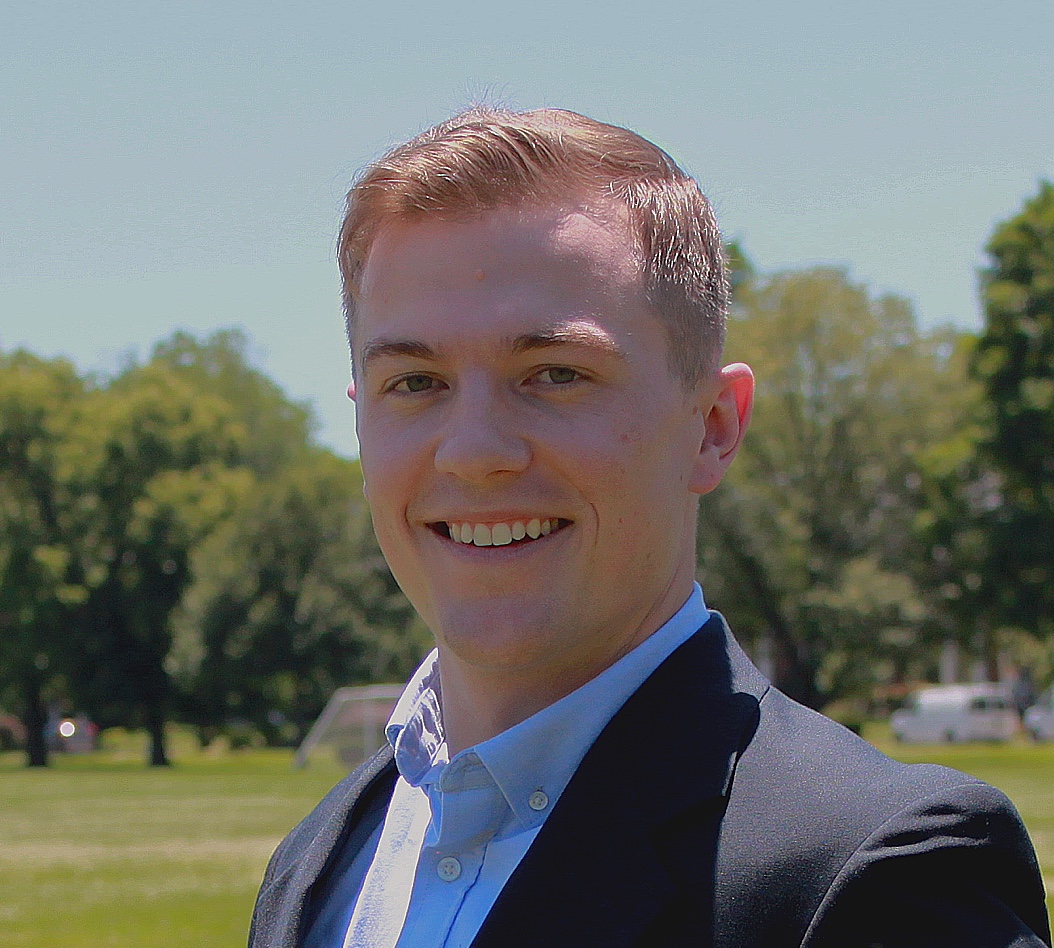
Chris Murray is a J.D. candidate at Harvard Law School. Apart from being a blockchain and fintech enthusiast, Chris also enjoys advising startups with the Harvard Law Entrepreneurship Project and was selected as a Black Family Fellow with the Harvard Kennedy School’s Center for Public Leadership. Before law school, Chris graduated from West Point with a degree in Comparative Politics and Arabic and served as an Infantry Officer in the US Army in assignments ranging from East Asia to Washington, D.C. Chris currently lives with his wife, Claire, in Cambridge, Massachusetts.